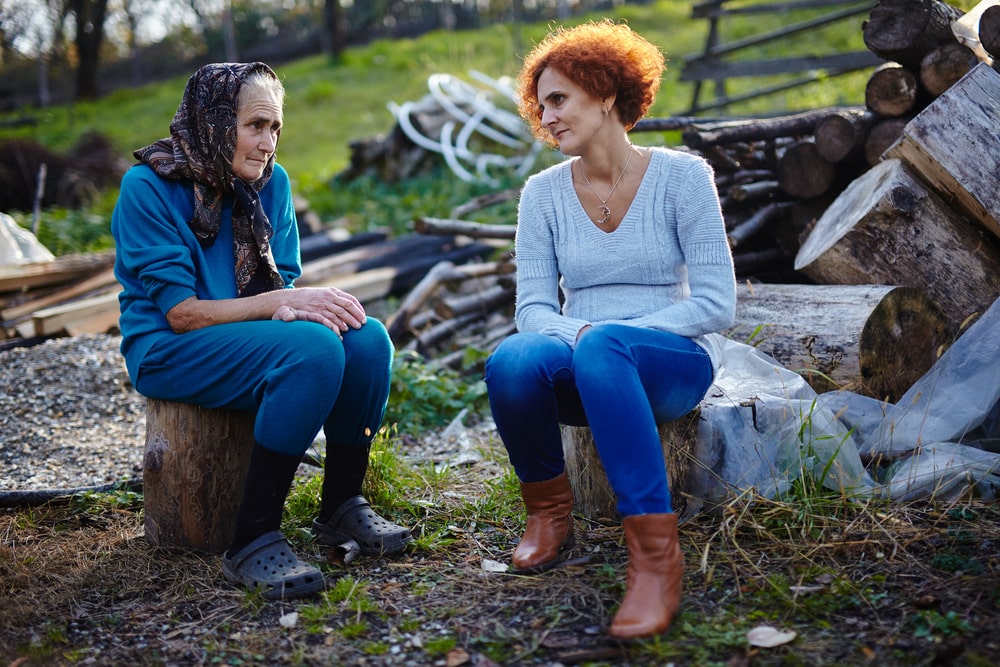You have survived the newborn, toddler, childhood, and adolescent stages of your child! You feel as if you did your best when watching them grow and develop through school, their first job, their first love, and heartbreak.
The saying still stands “They will always be your child.” No matter their age or lifestyle choices they are yours. You brought them into this world. You’ve helped to mold them into the grown adults they are today.
So as a parent what can you do when they fall off the right path? What is your role when it comes to them making bad choices in life?
There is a simple answer to all these questions. Although not easy, you have to support them emotionally, allow them to make their own mistakes, and advise when they need it or ask for it.
In this article
What Can I Do?
It’s easy to want to jump in and rectify any problem that your child may face, after all, that is exactly what you have done through their childhood right?
Now they are adults it is time to allow them to make their choices whether you agree with them or not. It is a critical time for your relationship but with the correct steps, it can be a bonding experience that your child will forever thank you for.
Reaction Is Key
The way you react to your child’s decisions will impact the trust and respect they have for you.
Let’s be honest we all want a child who can come to us and tell us everything. A relationship where they feel they can confide their secrets, and tell you their hopes and dreams. Sadly life can be a cruel and hard place to be and sometimes this isn’t always the case.
Communicate
As parents, we can talk and advise but ultimately it is down to your grown child to make the decisions in their own life. For many years we have had their eyes look up at us with insight and wonder.
View in gallery
Now it is time to see if you have passed on your wisdom to help them make good choices in life. Communication can often get confused with ‘telling’ It is important that when you communicate with your adult children you allow them to speak.
At first, they may be reluctant to talk but creating a safe secure space where no one is wrong can help them open up to you and convey what their true feelings are.
Mistakes are normal
In the not-so-distant past, you may remember the brutal arguments that you may have had with your parents, the saying “under my roof, there are my rules” Now I want you to remember how that made you feel?
If you ever made a mistake no matter how big or small. Did you feel safe? Did you feel as if you could talk?
Parenting like anything grows and evolves with generations. If we normalize mistakes within your household you are essentially letting your child know that with every mistake there is a learning opportunity.
There is a key opening here for you to share your mistakes with them as well.
It may be a similar heartbreak story or it could be the social circle they are involved in, but the message is to help them realize no one is perfect! Mistakes are made! It is how we rectify them that is important.
Bite the Bullet
This is probably the hardest thing to do as a parent. We have been there for every moment in our child’s life. Showing them tough love is a foreign feeling for us.
As parents, we want to swoop in on our magic carpet, wave our wands and make everything ok. But that is never realistic.
View in gallery
If you find your adult child is mixed up in dangerous behavior be it an addiction or financial difficulties, it is important that we use this to encourage them to be better to kick the drug habit, or to stop spending.
Our children will always know we have their backs but using this method can show them that they need to own their mistakes. It is a part of growing and being an adult.
You are always there to support and love them no matter what but making it clear that they need to help themselves before your help will work, can be imperative.
Enabling the mistake
The examples of tough love lead to enabling their mistakes. If we allow their mistakes to become our own then we are not leaving them enough room to learn and grow as adults.
We may feel that it is not fair if you have the money and they ‘need’ it then as a parent you will give them your last.
But if this is allowing them to continue with their behavior then surely when you stop supplying them with the ‘easy way out’ they will have no option but to assess their life and choices. This by no means is easy to do.
It is ingrained in us as parents to be there to bail them out when in trouble. It may bring many arguments to the table, it may leave you feeling as if you have failed.
They are behaving in a way that you feel responsible for. Please remember by helping them with every little issue you are not helping you are allowing them to continue with their bad choices and they know that you will fully endorse their behavior if they ask.
View in gallery
Open your views
It is difficult to understand where your child is coming from if you don’t agree with their viewpoint.
The only thing to remember is when the lines of communication are open and you are discussing worries, fears, or hardships, try to view the situation from their point of view.
We have been on this earth a lot longer than our children and face it we have made our fair share of mistakes and learning opportunities. So it is only natural for us to decide our way is the right way.
However, this attitude will not help anyone. It gives the impression of “it’s your way or the high way.” Being open to the viewpoint of your child will allow you to understand where they are and what they are feeling.
Anger, frustration
Dealing with a bad decision is frustrating at the best of times, but when you have advised and supported your child through many ups and downs and they still make the same decision it is not a shock to feel angry and annoyed.
These feelings are very real but you have to remember that they are your feelings. Venting your anger toward your grown child will never help the relationship. Instead, it will blur the lines of communication and could lead to resentment.
So, what can you do?
It isn’t healthy for you to bottle up those feelings but maybe you can vent your frustrations to a partner, family member, or friend. Doing this will ease your tension and allow you to be the emotional support for your child.
Support groups
Watching your grown child in a self-destructive manner is the most upsetting thing you can go through as a parent.
View in gallery
When they grow you have all these hopes and dreams for them and when the reality of their bad choices hits it can take you down like a cannonball. It is a process of grieving for the hopes and dreams you once had for your child.
Now, these dreams may be on a temporary hold until things sort themselves out but at that moment you may be feeling as if you are in a dark hole.
One where there is a lot of self-blame and resentment. You are supporting as much as you can but who is looking out for you? It is important for you to find your own support network whether it is in the form of a church group or local community group. Look after yourself guys!
Boundaries
All the way through life we are given rules. From chores to respect, we are taught the best way forward. As adults, we are treated no differently. There are laws and guidelines in place to help make our communities a safer place.
Setting clear boundaries for your adult child will guide them toward the right path and allow them to respect you and your home.
Boundaries are usually the most effective when your adult children:
- Are taking advantage of you, your home, or your money.
- Are blaming you for their mistakes.
- They are promising to change but are continuously choosing the wrong path.
Resentment can come before respect
As a parent, we like to think that we know what is best for our children no matter what their age. Approaching an issue that they may feel is under control or the best thing for them can turn into a hostile conversation.
View in gallery
You have done the best thing by bringing the topic up. If they didn’t think it was an issue they may be forced to admit it is. Prepare yourselves for their resentment, they may feel like you are butting into their life when they feel they don’t need your help.
The main thing to remember here is once you have mentioned your concerns, allow them to come to terms with the mistake that they may be making. Only when they have accepted this will they be ready to turn to you for support.
The Final Thought
It is obvious that being a parent is the hardest yet most rewarding job you will ever have. You are continuously judging yourself. Have I done enough? Have they made these choices because of something I did?
When raising children all we want is for them to turn into, well-rounded, respectful adults who are happy in their lives. The ultimate guide cannot prepare you for the choices they may make along their road to happiness.
Sometimes the bumps may feel like mountains but it is imperative that you allow them to make their own decisions no matter how you feel.
They will respect you for your support and advice. They will know that you have their back when they need it most. Just allow them to learn that mistakes will happen but it is how we learn from them that makes it a positive experience!






